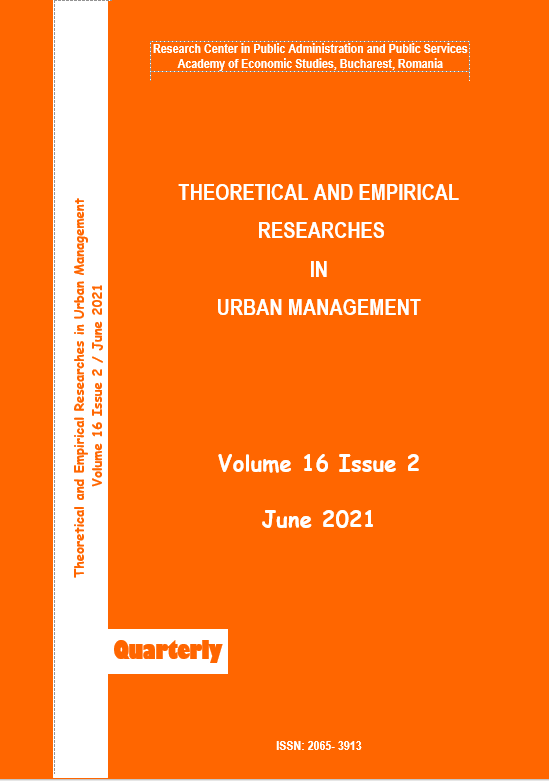ASSESSMENT AND MANAGEMENT OF URBAN ENVIRONMENTAL QUALITY IN THE CONTEXT OF INSPIRE REQUIREMENTS
ASSESSMENT AND MANAGEMENT OF URBAN ENVIRONMENTAL QUALITY IN THE CONTEXT OF INSPIRE REQUIREMENTS
Author(s): Anatoliy LYASHCHENKO, Igor PATRAKEYEV, Victor ZIBOROV, Lyudmila DATSENKO, Oleksii MIKHNOSubject(s): Geography, Regional studies, Business Economy / Management, Regional Geography, Environmental and Energy policy
Published by: Academia de Studii Economice - Centrul de Cercetare in Administratie si Servicii Publice (CCASP)
Keywords: spatial data infrastructure; sustainable development; urban metabolism; geodatabase; INSPIRE directive;
Summary/Abstract: The United Nations adopted the 2030 Agenda for Sustainable Development in 2015. Among 17 defined goals, in particular, the goal 11 deals with urban sustainability, resilient, population and air pollution. An effective decision-making is impossible without high quality truthful and credible data, data integrity, which describe the interactions between society and the environment in the increasingly urbanized world. Nowadays, data collection of urban environment monitoring and modeling systems generates so-called the Big Data which consists of such georeferenced parameters as weather conditions, pollutant concentrations and transport, in particular. From the other hand, the diversity and the interoperability of multi-source spatio-temporal data formats and structures in geographical information systems can siginicantly slow down the decision-making process of urban planning. Despite time-consuming data mining, we looked into an alternative knowledge-based intelligent method for urban metabolism analysis. Our approach is based on the infrastructures for spatial information which have been defined by the INSPIRE Directive of the European Union in 2010. Using the INSPIRE generic conceptual model, we focused on the user case in one of the major industrial cities in Ukraine, namely, Krivyi Rih, where urban methabolism is very dependant on fosil emmission and pollution rather than on renewable and green energy resources. The innovative indicators of material-energy flows were developed by the authors. Using those indicators, ArcGIS-based classification, cathegorization and modelling of urban metabolism of transportation subsystem were carried out. The simulation results showed that the efficiency of urban metabolic directly depends on a number of electromobilies on streets and the annual car mileage. In our study we demonstrated that the new indicators of material-energy flows are applicable. In the Krivyi Rih case the estimated efficiency of urban methabolism of 40% can be reached if the percent of electric cars on streets is 55% out of the total amount of vehicles, and the accomulated annual car mileage is about 15,000 km. Furthermore, it is proposed to extend and improve the INSPIRE generic conceptual model by including those indicators into it.
Journal: Theoretical and Empirical Researches in Urban Management
- Issue Year: 16/2021
- Issue No: 2
- Page Range: 55-71
- Page Count: 17
- Language: English

